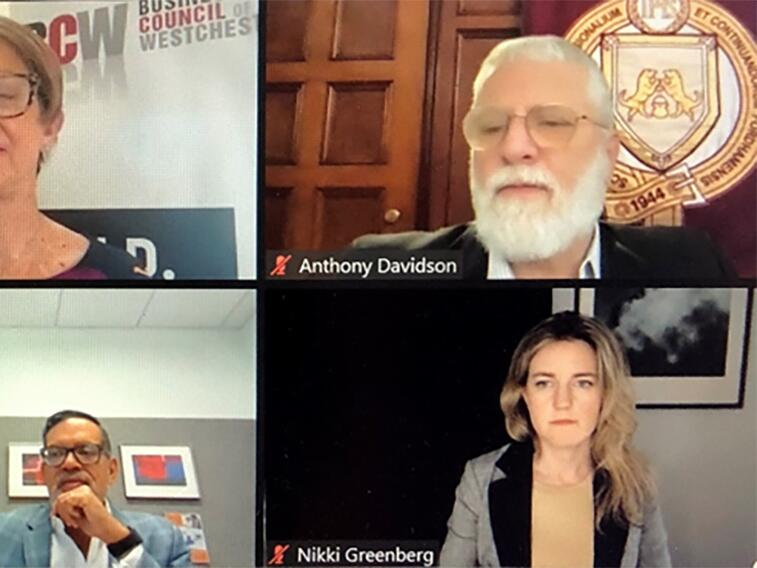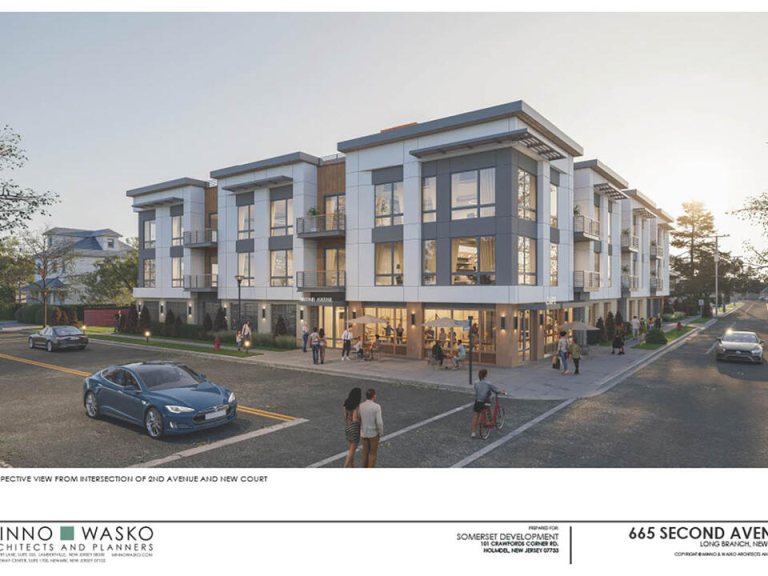Last week, leaders in real estate and economics discussed market trends and influencers and their impact on the commercial sector of Westchester County and beyond. The forum was hosted by Fordham University’s School of Professional and Continuing Studies and The Business Council of Westchester.
Let’s Get Fiscal! “Let’s Get Fiscal!” was presented virtually on June 1, and featured Nikki Greenberg Founder and Chief Innovation officer, Real Estate of the Future, Al Gutierrez Managing Director, Brokerage at JLL, and Melinda White Commercial Banking Leader for Hudson Valley at Wells Fargo. Dr. The discussion was moderated. Joshua Harris is a real estate economist, investment strategist and managing partner of the Lakemont Group. He is also an adjunct professor in Fordham University’s Real Estate Institute.
Harris began by examining the ‘yield curvature inversion’, where short-term interest rates are higher than the long-term rate, and its impact on real estate. He pointed out that the U.S. Treasury’s one-month rate was at 5.2%, while the 10-year rate – which is the benchmark for mortgage rates and commercial property valuation – was at 3.6%.
Harris stated that the Fed had increased interest rates at the fastest rate ever in the past 12 months. This is happening in the context of a post-Covid recovery, which is unusual for a place such as Westchester. It is one of the most famous suburban commuter zones of New York City.
He asked if Westchester was benefiting from the “turmoil” and work-from home in Manhattan.
Westchester has historically been the recipient of many HQs that moved from NYC in search of a better work and living environment. Gutierrez said that we then saw a move back to the urban environment. Now there are questions about the location – should they be in NYC or not? We should consider more regional offices. Westchester is a good location to gain.”
Gutierrez said that Westchester’s “dated” offices are a challenge: “There is a lot of investment needed to lure those occupants away from NYC.”
Harris then shifted the discussion to transit-oriented developments (TOD), noting the progress made in Yonkers and New Rochelle, and asking if Westchester’s property community was up to the challenge of providing this product moving forward.
White said that multifamily housing is the hottest real estate market right now. The economics are the limiting factor – can these projects be profitable with current interest rates? The cost of construction and carrying is putting projects on hold.
Greenberg, an innovation strategist and futurist, identified Gen Z as the target group for TOD. She said, “They are a different generation and they want to be homeowners.” They love technology, and they care deeply about the environment. It is natural for them to want a home close to their workplace or near highly-connected transport.
Harris asked about the impact of changes in capital access on the office market in terms such as expansions, reconfigurations, and other capital expenditures.
“Office space is an extremely competitive market.” White explained that everything is determined on a case-by-case basis, but if there are good stories to tell, there will be an appetite. Investors are cautious about investing more money in buildings. Owners have to dig into their pockets. This creates a downward spiral: If they don’t possess the cash to invest, it’s difficult to find good tenants.
The panelists also discussed remote-work trends, and how this is changing the real estate industry.
Greenberg said, “We cannot group everyone and every organization in one bucket. This leads to a lot contradictory data about productivity and expectations.” Today, the fact that the technology used for work is portable, and the information of companies is stored on the cloud has given us more options. The companies are empowered to take unique decisions on how and where the work is done.
The panelists agreed that a recession could provide an opportunity for Westchester to “rethink and reassess” as well as “reinvest.”
Gutierrez said that there is a large amount of capital available but it has not yet been deployed. We’ll see opportunistic investor looking at assets on the verge of foreclosure as land-banking for redevelopment. Alternative industries have been a major factor in Westchester’s recovery. These include health care, education and life sciences.
Business Council of Westchester CEO and President Dr. Marsha G. Gordon said, “This insight will be crucial as we plan for the future beyond 2024.” What happens in the Hudson Valley, NYC and broader region impacts the entire Westchester business community.
Fordham University School of Professional and Continuing Studies Dean Dr. Anthony R. Davidson said, “We are proud to work with The Business Council of Westchester and to bring together the best minds to keep us all ahead of trends.” Our mission is to provide degree, corporate and professional training programs that are in line with the way we work and live.
Davidson stated that, as part of PCS’ mission to support Westchester’s community, the school launched a “Good Neighbor Initiative” which offers an automatic 30% reduction in tuition for students enrolled at Fordham Westchester’s PCS campus who reside within the campus’ “neighboring zip codes” at the time of application.

























+ There are no comments
Add yours